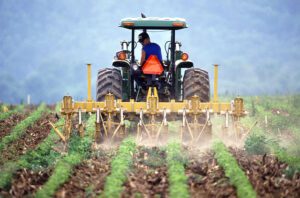Who is a member?
Our members are the local governments of Massachusetts and their elected and appointed leadership.

The U.S. Department of Agriculture is working to increase the amount of farmland eligible for federal preservation funding. (Photo courtesy Keith Weller/USDA)
The U.S. Department of Agriculture’s Natural Resources Conservation Service in Massachusetts and the American Farmland Trust are working with municipalities to increase the amount of farmland eligible for federal preservation funding.
Under its Agricultural Land Easement program, the NRCS works with partners such as the Massachusetts Department of Agricultural Resources, land trusts, and municipalities to preserve farmland by paying willing farmland owners the development value in exchange for ensuring agricultural land remains protected and available for farming.
Eligibility for NRCS funding is based in part on soil types. A parcel must consist of at least 50% important farmland soils (Prime Farmland, Unique Farmland, or Farmland of Statewide Importance) as depicted in the NRCS soil survey.
These soil survey designations do not capture all areas suited for crop production, however. Designating additional soil types as Farmland of Local Importance can increase the potential for federally funded farmland preservation.
Under the Code of Federal Regulations, a municipality can designate soils as Farmland of Local Importance by following this process:
1. The NRCS reviews the soil mapping and land use in the municipality via the soil survey maps and aerial imagery.
2. Soil types with evidence of crop production that are not classed as Prime Farmland, Unique Farmland or Farmland of Statewide Importance in the soil survey are presented to the municipality to be designated as Farmland of Local Importance.
3. A municipal official and the NRCS State Conservationist sign the list. The municipal official can be anyone duly recognized as representing the town regarding agriculture, open space, small business or conservation, such as the conservation commission chair, agricultural commission chair, select board chair, mayor, town administrator, open space and recreation plan committee chair, planning board chair, etc.
4. The list is housed on the NRCS Field Office Technical Guide, where it will be applied to determine eligibility for federal farmland preservation funding.
As of January 2023, 39 Massachusetts cities and towns have designated Farmland of Local Importance.
Key points
• There is no cost to the municipality in designating Farmland of Local Importance; the NRCS funds this initiative to ensure that all land that is eligible for ALE funding is recognized.
• There is no regulatory association with listing soils as Farmland of Local Importance.
• Inventories of important farmland soils do not constitute a designation of any land area to a specific land use.
• The designation of Farmland of Local Importance does not affect property tax rates. The establishment of a farmland conservation restriction does not affect the tax rate for parcels under Chapter 61A.
The designation may not make a difference in preserving farmland. There are many factors in addition to soils, starting with landowner choice. Recognizing Farmland of Local Importance only addresses the 50% important soils ALE funding eligibility requirement.
For more information, contact Al Averill, certified professional soil scientist with the NRCS and American Farmland Trust, at [email protected] or 413-253-4356.
Related resources
• USDA soil survey information
• Designations of Farmland of Local Importance in Massachusetts
• NRCS Agricultural Land Easement program